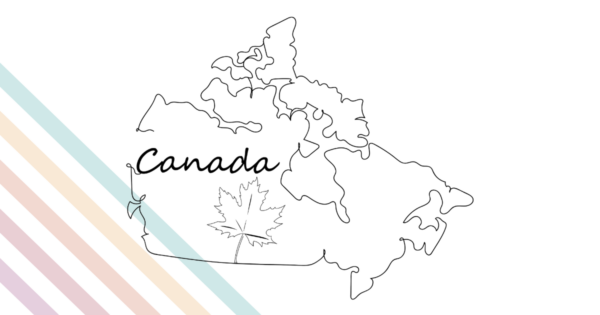There are many advantages to purchasing or establishing a business in Canada. Entrepreneurs immigrating to Canada play a pivotal role in Canada’s economic landscape. There are over 600,000 immigrant-owned businesses in Canada, accounting for 33% of all business owners with paid staff in the country.
Canada ranked fourth in the 2021 Global Start-up Ecosystem Index Report and boasts more cities in the top 50 than most other countries, except for the USA and China. Innovation and startup hubs are growing across the country and offer access to fundraising opportunities and a supportive ecosystem. Access to the US market and Canada’s range of free trade agreements make Canada an ideal location for businesses with international expansion plans.
Canada offers an environment conducive to entrepreneurship with a strong rule of law, protection of intellectual property, and ease of doing business. Canada’s highly educated workforce offers access to skilled professionals in fields like technology, engineering, and business. Many universities and research institutions also collaborate with startups.
Who should consider business immigration?
You might consider business immigration pathways if:
- You’re established in your career either as a senior manager/executive or business owner/entrepreneur
- You do not want to be employed and prefer to run your own business
- You have the financial capital to purchase or start a company in Canada and support yourself and your family. (Recommended at least CAD 250,000 investment)
- You don’t qualify for another immigration program
- You qualify for an Express Entry program but your CRS rank isn’t high enough to get an invitation to apply
Business Immigration Programs
You may be familiar with programs, like Start-up Visa, Self-employed Class, and Provincial Nominee Programs. These are purpose-built permanent residence programs for qualifying entrepreneurs and business owners.
Along with these programs, we’re excited to share lesser-known business immigration strategies. These strategies provide entrepreneurs and business owners with opportunities to work temporarily and, in some cases, to pave a path to permanent residency.

Start-up Visa Program
You may apply for permanent residence in the Start-up Business Class (“SUBC”) program to launch an innovative business in Canada. Canada’s Start-up Business Class targets immigrant entrepreneurs with the skills and potential to build businesses in Canada that are innovative, can create jobs for Canadians, and can compete on a global scale.
To be eligible, you must have a qualifying business with a letter of support from a designated organization. These organizations include venture capital (VC) funds, angel investors, and business incubators. You must secure a minimum investment of $200,000 or $75,000 from a VC or Angel, respectively. You do not need a minimum investment from a business incubator. Rather, you typically pay a service fee to participate in their incubation program. Incubators can be ideal for entrepreneurs who have the means to capitalize on their startup without giving up an equity stake.
A qualifying business is one in which each co-founder holds 10% or more of the voting rights attached to all shares of the corporation. You, your co-founders, and the designated organization (if the organization is taking an equity state, which is not mandatory) must jointly hold more than 50% of the total voting rights attached to all shares of the corporation outstanding at that time.
Other criteria include:
- Providing active and ongoing management of the business from within Canada at the time you receive your permanent residence.
- Taking a language test from an approved agency and meeting the minimum level of Canadian Language Benchmark (CLB) 5 in either English or French in the four testing areas (speaking, reading, listening, and writing).
- Showing proof that you have the money to support yourself and your dependents after you arrive in Canada.
If you reach an agreement with a designated organization, they will send you a letter of support (LoS). Upon receipt of a LoS, you can apply for permanent residence. If your LoS indicates there are urgent business reasons necessitating your entry to Canada before you become a permanent resident then you are eligible to apply for a work permit.
Key benefits of the Start-up Visa Program include:
- No invitation system. If you receive a LOS, you proceed to submit your PR application directly to IRCC.
- No personal net worth verification required.
- Keep in mind, IRCC often asks for at least 6 months of recent bank statements. In addition, they may request details about the source of funds.
- No minimum investment required.
- IRCC will assess the viability of the business, including access to capital to fund the business activities essential to establishing the business and creating job opportunities for Canadians.
Self-Employed Persons
This program exclusively targets individuals who have participated in world-class cultural activities or athletics or have been self-employed in these fields.
Occupations in art, culture, and sport belong under the National Occupational Classification (NOC) System Major Group 5.
In addition to having the required experience, you must:
- demonstrate your intent and ability to be self-employed in Canada in cultural activities or sports,
- have the financial means to create your employment in Canada. This includes the ability to be financially self-sufficient while initiating the self-employed activity,
- be able to create a significant contribution to economic activities.
Provincial Nominee Programs
The Federal and Provincial/Territorial governments collaboratively manage provincial nominee programs. Some provinces have multiple entrepreneur streams to address the strategic priorities and economic needs of the province. For example, the British Columbia Provincial Nominee Program (BC PNP) has a Base Category and a Regional Pilot that targets entrepreneurs establishing or purchasing businesses in certain cities/towns that align with the local jurisdiction’s economic priorities. Other provinces have programs targeting agricultural entrepreneurs, like Alberta, Saskatchewan, and Manitoba.

Each province and territory sets criteria for its programs. Generally speaking, entrepreneurs must meet some iteration of the following criteria:
- Be purchasing or establishing a business with a qualifying ownership structure
- Have a minimum personal net worth
- A personal net worth verification report often required
- Invest a minimum amount in eligible business expenses
- Possess sufficient experience as a business owner or senior manager
- Make an exploratory visit
- Not a requirement for every program but always highly recommended
- Create job opportunities for Canadians
- Intend to reside in the province and spend a minimum # of days per year in the province
- Meet minimum language and education levels
The application process is multi-stage, and generally follows the process described below:
- Application to a provincial or territorial government
- You must apply to the provincial or territorial program for consideration. Applications must include a business plan and, in some cases, personal net worth verification.
- Some provinces accept applications by invitation only. In these cases, you must register to express your interest in applying and then wait for an invitation to apply.
- Work Permit Letter of Support
- The province/territory will issue a Letter of Support when you have been approved in principal. This allows you to obtain a work permit to come to Canada and begin working on your business.
- You will sign a performance agreement with the province/territory. The agreement sets out Key Performance Indicators (KPIs) that you must attain while operating your business once you receive your work permit. You typically have 18-24 months to achieve the KPIs.
- Some provinces require you to live within a certain vicinity of your business location and spend a minimum number of days in the province each year.
- Your spouse and dependent children who are the age of majority can apply for work or study permits. Minor children can apply for study permits or visitor records to accompany you to Canada during this time.
- Final Report
- You will submit a Final Report to the province once you have met the KPIs in your Performance Agreement.
- You must operate your business for a minimum period of time before you are eligible to submit the report, even if you meet the KPIs earlier. This condition varies by province and territory.
- You may not be eligible to continue to the next stage if you are unable to meet the KPIs within a maximum period of time
- Nomination
- The province/territory will issue a Nomination Certificate if you meet the conditions of your Performance Agreement within the time allotted.
- Application for Permanent Residence (PR)
- You can apply for PR once you receive a provincial nomination. This is submitted to Immigration, Refugees and Citizenship Canada (IRCC) in the PR Portal (not Express Entry)
- Your PR application will include your immediate family members (spouse/common-law partner and children, as applicable).
- IRCC completes background and medical checks to ensure you and your family members are admissible to Canada.
- You must continue running your business and adhere to the provincial or territorial conditions of nomination while the PR application is under review.
Provincial and territorial nominee programs are a great option for entrepreneurs who don’t meet the SUV Program requirements or who may not be able to obtain a Letter of Support from a Designated Entity through the SUV Program.
NOC 00 Job Offer and Express Entry
You may meet the requirements of the Federal Skilled Worker (FSW) program or another federal program managed in the Express Entry system but lack the points needed to receive an invitation to apply. The number of points needed to be invited to apply in Express Entry has soared in the past year as IRCC introduced targeted draws and demand for immigration to Canada continues to increase. If you’re in this situation, you may still be able to apply in the Express Entry system while operating your business in Canada.
First, you need to obtain a work permit in an executive or senior-level function. If you own an existing business, you can establish a new business in Canada with a qualifying relationship (subsidiary, affiliate, or branch). Then, apply for a work permit authorizing you to operate your business in Canada. The work permit is issued through the International Mobility Program (IMP) and is LMIA-exempt. The category of work permit is called “Intra-company transfer”.
A work permit authorizes you to work in Canada temporarily. After a year of operating your Canadian business, you qualify for an extra 200 points in Express Entry. You must continue to hold a valid work permit until you receive an Invitation to Apply in the Express Entry system, which often necessitates a work permit renewal. To obtain the renewal, you must demonstrate you’ve made progress in your business and, ideally, hired Canadian citizens or permanent residents.
Free Trade Agreement with Canada
If you’re a citizen of a country with a Free Trade Agreement with Canada, you may also be able to apply for a work permit as an investor, even if you don’t own and operate a business. These countries include the USA, Mexico, Chile, Columbia, South Korea, Peru, EU, UK, Australia, Vietnam, and Brunei. The strategy is similar to that described above, insomuch as you apply for a work permit and receive 200 points after 1 year as long as you maintain a valid work permit.
It’s important to ensure you will continue to meet the minimum eligibility criteria of an Express Entry program before embarking on this path. Keep in mind, that you must operate your business for at least a year before you’re eligible for the extra Express Entry points. Since age is a factor in the Federal Skilled Worker eligibility criteria, you must assess and plan carefully to ensure this strategy is suitable for you. This strategy is a combination of temporary and permanent residence programs, instead of a purpose-built entrepreneur permanent residence program like the first 3 options discussed. However, for the right entrepreneurial candidate, it can be one of the most cost-effective and quickest pathways to permanent residence.
TL;DR
There are a range of business immigration pathways for entrepreneurs seeking to establish or purchase a business in Canada.
Federal immigration programs include the Start-up Visa Program and Self-employed Persons Class. Provinces and territories also have purpose-built entrepreneur programs and are facilitated in collaboration with the federal government.
A lesser-known and understood strategy for entrepreneurs who meet the criteria of an Express Entry program but don’t have enough points to be invited to apply is obtaining a work permit through the International Mobility Program (IMP) (as an investor or intra-company transfer) in an executive or senior managerial function to work in a business that you purchase or establish. Following a year of operating the Canadian business, the system awards you with 200 additional points in Express Entry. That may be enough to secure the elusive Invitation to Apply!
Written on January 24, 2024, by Brooke Finlay
